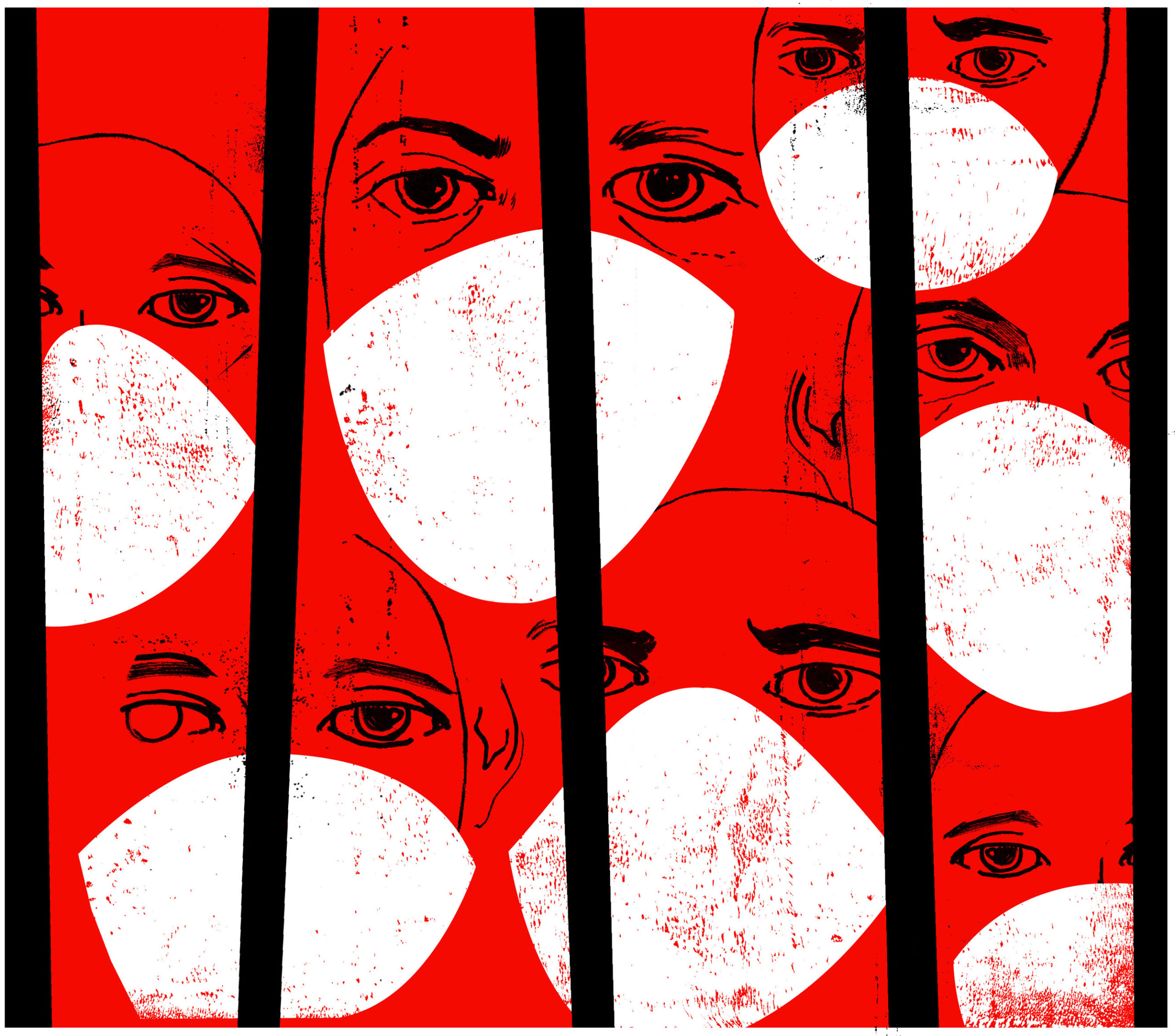On April 21, in the midst of El Salvador’s hard-core coronavirus lockdown, President Nayib Bukele tweeted a photo of himself seated behind a desk in an elegant office, wearing a face mask. Accompanying the photo was the following reassurance: “The rumors of my kidnapping by aliens are completely unfounded.”
As if that weren’t odd enough, the next day he updated his profile picture to the same image of him face-masked, this time with the desk photoshopped out—and replaced by a spaceship.
Granted, Bukele had already gone orbital long before the coronavirus struck—like that time he announced: “President Trump is very nice and cool, and I’m nice and cool, too … we both use Twitter a lot, so, you know, we’ll get along.” This, mind you, was after the same Trump had referred to Bukele’s country as a “shithole.”
A former advertising executive and mayor of San Salvador, Bukele assumed power in June 2019 at the age of 37, having successfully marketed his Nuevas Ideas party as a desperately needed break from ARENA and the FMLN, the two parties that have dominated contemporary Salvadoran politics since the end of the bloody civil war in 1992. It seems, though, that Bukele’s ideas aren’t so nuevas—in that phenomena like unchecked authoritarianism and power-tripping have been around for quite a while.
In addition to tweeting ad nauseam and taking selfies from the podium at the United Nations, Bukele’s presidential activities have included deploying heavily armed soldiers and police inside El Salvador’s Legislative Assembly in February and threatening to dissolve it if lawmakers didn’t cooperate on a loan he was demanding for his Territorial Control Plan. According to Bukelian fantasy, this plan will resolve the country’s gang problem—and to hell with democracy. The militarization of the Assembly was a stunt unseen even during the 12-year civil war, during which the vast majority of atrocities were committed by a U.S.-backed right-wing military and allied death squads. But, you know, new ideas.
I happened to be in San Salvador at the time of the Assembly spectacle this winter and attended a brief pro-Bukele demonstration in front of the building. Demonstrators, many of whom had been bused in from outside the capital, were given black crosses adorned with a hashtag denouncing the recalcitrant lawmakers as mierda, signified by the poop emoji. The crosses were meant to symbolize how Salvadorans were dropping dead because Bukele wasn’t getting his loan; it was not clear, however, how anyone in such a fanatically religious country had deemed it prudent to put a poop emoji on a cross. The lawmakers, for their part, were given at least a temporary reprieve when Bukele called off the siege of the Assembly, informing his followers that he had spoken with God, who had told him to be patient.
Now the coronavirus has provided another opportunity for Bukele to be the big boss, again under the pretense of saving Salvadoran lives. On March 14, a state of emergency was declared in El Salvador, despite there being no confirmed cases of Covid-19. And the situation quickly deteriorated into one of the craziest lockdowns on the planet.
As Salvadorans found themselves under de facto house arrest, Bukele set about flaunting his disdain for inconvenient notions like human rights and the separation of powers. Repeatedly, he ignored Supreme Court rulings that cautioned him to respect fundamental rights and proceeded defiantly to arrest people arbitrarily for perceived quarantine violations and then stuff them all into crowded detention centers. This practice, it bears underscoring, did far more to undermine the quarantine than, say, an individual who left home to buy food for their family.
As of the beginning of May, thousands had already been arrested and jailed for alleged violations of the quarantine. Around mid-month, news articles began appearing with headlines like this one from The Washington Post: “El Salvador quarantine centers become points of contagion.” Salvadorans returning from abroad have also been placed in unsanitary containment centers. In one case reported by the Salvadoran investigative news outlet El Faro, 67-year-old engineer Carlos Henríquez Cortez returned from a two-day business trip to Guatemala in March and was forcibly interned in a quarantine facility despite a supposed provision for persons over 60 to quarantine at home. Five weeks later, he became El Salvador’s eighth coronavirus fatality.
Meanwhile, in a country as brutally impoverished as El Salvador—where, for many people, access to food depends on whether they’ve earned any money that day—the mere act of staying at home can also be a death sentence. And while the government promised the neediest families a onetime payment of $300 in assistance, the incompetent distribution of these funds constituted a disaster in itself. Crowds of desperate people flooded banks and government offices, further eroding the protections of social distancing.
Nor, to be sure, do all the victims of femicide and domestic violence under lockdown have much reason to view Bukele as the savior of El Salvador. As reported in El Faro, the lockdown instigated a spike in domestic violence reports. “For some women, obeying the stay-at-home order has proved lethal, yet addressing this problem has not been a priority in El Salvador—the country that, in 2018, registered the highest levels of violence against women in the world.”
But the president has more important things to think about, like ordering the total shutdown and blockade of the municipality of La Libertad—which he did in April, via Twitter, after seeing a video-tweet of what he deemed to be too many people in circulation in the area. The Salvadoran defense minister tweeted back, and the job was done. Such is life in Bukelelandia.
In a recent email to me, Salvadoran anthropologist Juan José Martínez d’Aubuisson remarked that, while Bukele had long harbored “ambitions to concentrate the most power and resources possible in the executive branch,” the pandemic has rendered ever more visible his administration’s “authoritarian strategy.” A May 15 Bloomberg opinion article enumerated some additional Covid-19 highlights from El Salvador:
The government abruptly closed down all public transport, leaving many doctors and other first responders on foot. Police were given broad powers to enter homes without warrants and arrest those thought to be violating quarantine; security forces mistook a young woman who’d gone shopping for a Mother’s Day present for a criminal gang member and shot her dead.
Bukele himself has railed against critics of police abuse on the grounds that these critics are simply “wanting more Salvadorans to die,” an inversion of reality of Trumpian proportions, given the Salvadoran security forces’ established tradition of extrajudicial assassinations and myriad other human rights violations, including torture. And of course, these same security forces have received funding and other forms of encouragement from the United States, whose complicity in the deaths of Salvadoran civilians is hardly new.
During the Salvadoran civil war, the United States poured billions of dollars into a conflict that killed more than 75,000 people and caused countless Salvadorans to flee, many of them to Los Angeles—where a different kind of brutality awaited. There, the MS-13 and Barrio 18 gangs formed as a means of communal protection. At the end of the war, the United States undertook mass deportations of gang members—which, coupled with the U.S.-backed neoliberalization of the tiny country, spelled more death for El Salvador and created the conditions for yet more northward migration. To this dubious record add the present era of harsh deportation policies in the United States, in which Salvadorans are knowingly sent back to face abuse and even death. Now, even if a returnee survives the gauntlet of unaccountable security forces and gangs who prey on deportees, the coronavirus has made the whole inhuman process even more lethal.
California State University’s Dr. Steven Osuna observes that the “punitive populism deployed in El Salvador with the support of the U.S. state has targeted a marginalized relative surplus population that has been deprived of any access to the wealth and resources of the country.” Gangs have long served as a politically useful scapegoat for El Salvador’s woes and its regular appearance on the global list of homicide capitals, justifying mano dura policies and other measures that criminalize youth and render young men and tattooed persons, in particular, fair game for abuse and/or extermination by security forces. But as Osuna emphasizes, the violence perpetrated by marginalized groups will “never equal the viciousness of what neoliberalism and transnational capital have produced for the majority of the country—alienation, domestic uncertainty and desperation.”
Enter Bukele and his mano dura response to the coronavirus, which one might be forgiven for interpreting as an attempt to just wipe out the surplus population altogether. As if the Salvadoran guardians of law and order required any more leeway, following a spike in homicides in April, Bukele authorized the army and police to use lethal force against gang members (read: people buying Mother’s Day presents). The corresponding presidential tweet specified that such force was permissible in “self-defense or in defense of the lives of Salvadorans.”
Alleging that the orders for the spike in violence had come from imprisoned gang leaders, Bukele orchestrated a show of force within the prisons, as well, and his press office tweeted images of hundreds of tattooed, underwear-clad prisoners seated crotch-to-ass on the floor with legs extended.
Indeed, things have gotten so bad that even The Wall Street Journal’s Mary Anastasia O’Grady—who, as far as I know, has never met a hard-line authoritarian she didn’t love—felt compelled to call Bukele out at the end of April (although she couldn’t help getting in a jab at Fidel Castro for good measure). Describing how Bukele had just brought about the shutdown of the Legislative Assembly by tweeting a suspicion of Covid-19 contamination in the chamber, O’Grady complained that the Salvadoran president was “undermin[ing] democracy” and therefore “no friend of the U.S.”
For someone who viewed the 2009 right-wing coup d’état against the democratically elected president of Honduras as a defense of democracy—and Hillary Clinton as a Communist sympathizer—it’s not clear why exactly O’Grady has a beef with Bukele. In fact, he is a very good friend of the United States, at least in its current incarnation, and not just because of the shared presidential affinity for Twitter—or, now, a shared commitment to ingesting hydroxychloroquine as a discredited prevention measure against the virus.
Beyond presiding over a landscape of acute neoliberal misery, Bukele has also cooperated with Trump’s anti-migrant policies and last year even signed a so-called “safe third country” agreement as a preliminary step toward serving as a dumping ground for migrants seeking asylum in the United States. Never mind that a ton of U.S.-bound migrants hail from El Salvador in the first place because it’s, well, super unsafe.
Bukele is furthermore on board with Trump’s policy of perpetual harassment of Venezuela, spearheaded by U.S. special envoy Elliott Abrams, who unsurprisingly played a significant role in the Salvadoran civil war. Commencing his stint in 1981 as Ronald Reagan’s assistant secretary of state for human rights and humanitarian affairs immediately after the U.S.-trained and funded Atlacatl Battalion massacred up to 1,200 people in the Salvadoran village of El Mozote, Abrams spent his early days on the job denying any such massacre had happened. In later years, he would defend notorious Salvadoran death-squad leader Roberto d’Aubuisson and praise the Reagan administration’s blood-drenched record in the country as one “of fabulous achievement.”
When the Salvadoran Supreme Court ruled Bukele’s quarantine detentions unconstitutional, he responded with the tweet: “Five people are not going to decide the deaths of hundreds of thousands of Salvadorans.” The national state of emergency was extended twice, and on May 18 the Bukele administration issued an executive decree to extend it once more—just a day after the Legislative Assembly had refused any further extensions due to a lack of transparency surrounding the expenditure of emergency funds.
As always, there’s nothing like a bit of religion to distract from—or complement—the neoliberal project. Hence, perhaps, Bukele’s declaration of May 24 as a “National Day of Prayer” against the pandemic. Interestingly, as recently as January 2019, Bukele insisted in a Facebook post that he was “not a religious person.” Of course, this hadn’t prevented him from conducting a dramatic bout of prayer at the Western Wall in Jerusalem in 2018, where—despite being of Palestinian origins—he had traveled on an Israeli government–sponsored trip. God can be a useful ally—and it’s presumably thanks at least in part to him that Bukele’s approval rating is still so inconceivably high.
Still, as he persists in ignoring basic human rights, undermines the independence of the judiciary, displays contempt for the constitutional authority of the legislature, presides over a downward-spiraling economy, and propels his country into ever greater emergency, maybe it’s time the young president got on that spaceship, after all.
Belén Fernández is the author of Exile: Rejecting America and Finding the World, published by OR Books; Martyrs Never Die: Travels Through South Lebanon, published by Warscapes; and The Imperial Messenger: Thomas Friedman at Work, published by Verso. She has written for The Washington Spectator on a range of countries, from Honduras and Colombia to Turkey and ex-Yugoslavia.







0 Comments